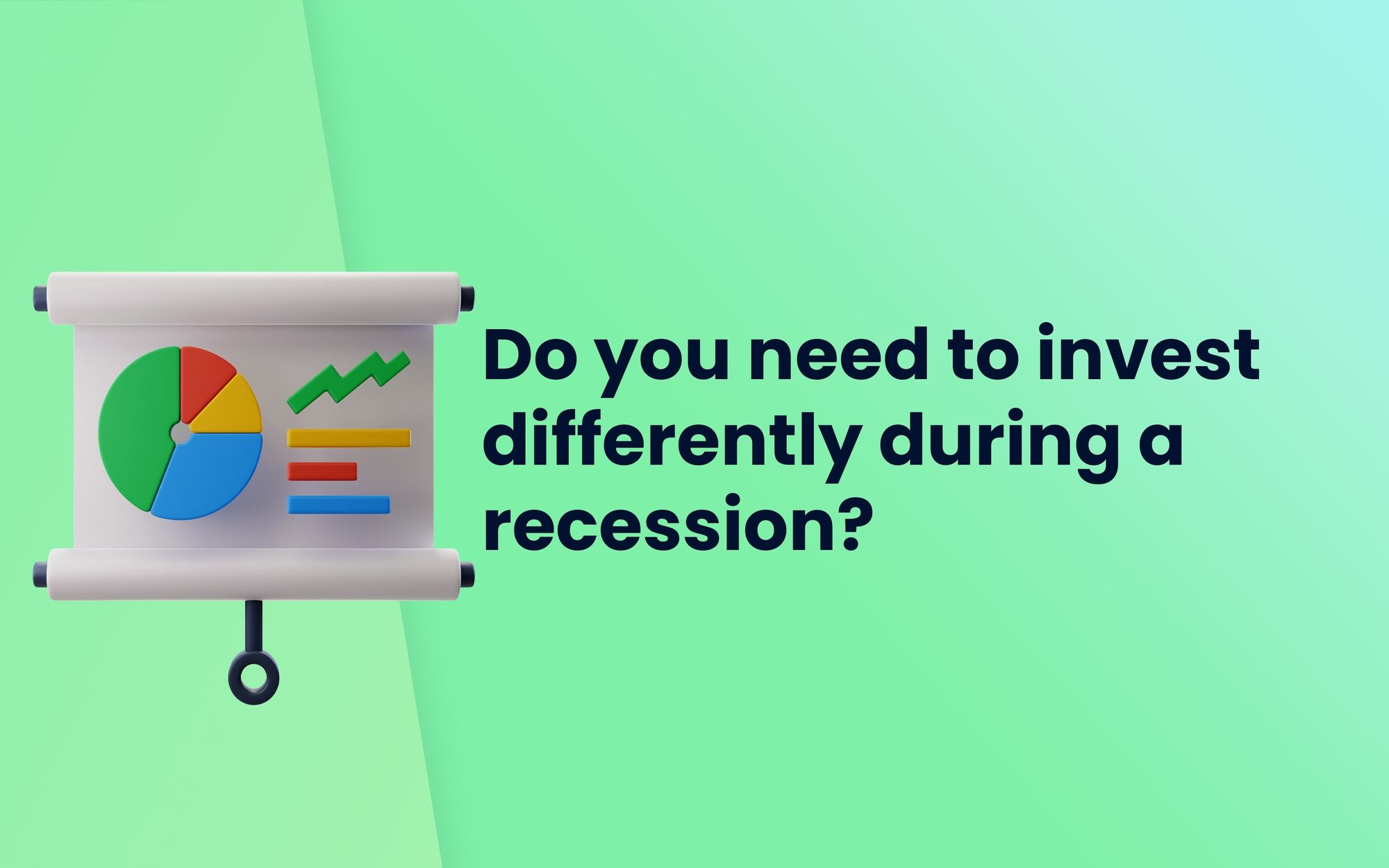Do you need to invest differently during a recession? | Pints
Learn the basics of how to invest your money in times of recession.

Most YouTube investing gurus, after 3 years of “buy low, sell high”, “trend is your friend” and “invest 20% capital for 80% gains” have now switched to “the best time to invest is during a recession” mantra. They will often convince first time investors that investing during challenging times is vastly different from investing in times of a bull run. And that may well be true - if you are trading daily, playing options or CFDs. But, if you are a long term, systematic, fundamental focused investor (like Mr. Buffet), should you change your strategy? Let's find out.
Trading in recession years is not the same as trading in a bull market. For one, there are no hype signals and trends are often very difficult to spot. Sure there may be pockets of trends that you will identify, and make a profit, but take your eye off the ball, and you are bound to get smacked on the face. Traders are definitely having a hard time making easy money - as this article points out as well. In just 2022, retail traders lost nearly $350 BILLION, by not adjusting their strategies in time. Hurts rt?
But even if you are a long term investor, you need to be more careful. Of course, as a long term investor, your portfolio will see multiple recessions, FED interventions and political & geopolitical upheavals. To start with, if you are adding a new company to your portfolio, you will need to research a lot more. Often, investors just look at the past peak price of the stock, and assume (sometimes wrongly) that the stock will just go back to that level. But realising that the stock’s previous peak had nothing to do with the company’s performance, and was just pumped due to a bull run, is an important signal to spot. So, do more research, understand the company’s business model, ask the primary question - will the company’s products and services be needed in the future?
Investing in recessionary years means not being too optimistic about the very short term. Historically, markets have taken years to correct and go back to the previous bull run peak. But that does not mean, everything is good and easy. Some simple truths you can adhere to while selecting companies to invest in, now that markets are in the bin:
- Invest in companies that are doing well for a long time but have had a recent dip due to economic conditions or market shifts.
- Choosing securities having a low correlation with other sectors and industries
- Take into consideration the volatility of the stock - you want that to be aligned with your own risk appetite
- Keep an eye on fundamentals of the business such as sales, revenue growth, return on equity, etc.
- Diversifying your portfolio among different stocks and markets (such as U.S., Europe, Asia).
Let’s explore some of these themes in detail

Know your risk tolerance before you invest
Do you need a quick return that might not be as high as other stocks? And are you willing to accept the risk of investing in a company with less income or a company that's losing money? How long are you willing to wait for the price to recover, in case it drops after you have invested?
These are questions people should ask themselves before investing. Then, they should do their research on the market and invest based on the best course of action.
The main rule is to diversify your investments and make sure you're backing the right industry - always compare companies and industries with similar performance (e.g. if one company is trading at $8 per share and another at $10 per share, this would be a sign that the first company has been performing well while the second has been doing poorly).
There's no easy answer to how to invest during a recession, but one should keep an open mind and use common sense when it comes to investing.

Learn to let go of your investments
Not all investing decisions are right - even Warren Buffet admits to his mistakes and pares positions. It is important to learn to let go of your investments and focus on the things that are eternal. The idea is to make peace with what you have and stay positive, but it is also important to be realistic. It is not wise to expect a significant gain in your portfolio just by investing when the stock was hovering near its 52 week low. Remember, it can drop further!

Diversify your portfolio
When investing during a recession, it's important to spread your investments out among different sectors and types of investments. This makes the risk reduced and helps you avoid losing everything together.
Investing in stocks can be risky, so it's important to diversify your portfolio with other investment opportunities. There are many ways to invest - including real estate, investing in startups, commodities and more. Investing in these areas will help reduce the risk of losing money as well as help increase your overall net worth. With these options, there is less chance of losing value and more chance of building wealth which all lead to better financial security.

Stay invested during a recession
This is one of the most important things to remember when investing in a recession. It is not always the best idea to sell stocks during a recession. There are always going to be times when the market goes up and other times when it goes down - that is just how it works. To stay invested in your stocks during a recession, you could take small profits when you see them, or reinvest that money back into more shares of stock for the future. If you continue to hold on long enough, your investment will eventually come back and help you make a lot of money.
The Bottom Line
Don’t panic. If you have invested in companies that you believe in, are fundamentally sound, leading their industry and are solving a real problem, stay the course.
Read more: How to Start Investing - POV from an Intern